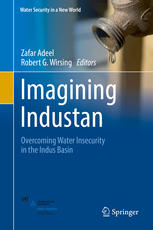

Most ebook files are in PDF format, so you can easily read them using various software such as Foxit Reader or directly on the Google Chrome browser.
Some ebook files are released by publishers in other formats such as .awz, .mobi, .epub, .fb2, etc. You may need to install specific software to read these formats on mobile/PC, such as Calibre.
Please read the tutorial at this link: https://ebookbell.com/faq
We offer FREE conversion to the popular formats you request; however, this may take some time. Therefore, right after payment, please email us, and we will try to provide the service as quickly as possible.
For some exceptional file formats or broken links (if any), please refrain from opening any disputes. Instead, email us first, and we will try to assist within a maximum of 6 hours.
EbookBell Team

4.3
68 reviewsThis volume calls upon over a dozen Indus observers to imagine a scenario for the Indus basin in which transboundary cooperation over water resources overcomes the insecurity arising from water dependence and scarcity. From diverse perspectives, its essays examine the potential benefits to be gained from revisiting the 1960 Indus Waters Treaty, as well as from mounting joint efforts to increase water supply, to combat climate change, to develop hydroelectric power, and to improve water management.
The Indus basin is shared by four countries (Afghanistan, China, India, and Pakistan). The basin’s significance stems in part simply from the importance of these countries, three of them among the planet’s most populous states, one of them boasting the world’s second largest economy, and three of them members of the exclusive nuclear weapons club. However, the basin’s significance stems also from the great importance of the Indus waters themselves – due especially to the region’s massive dependence on irrigated agriculture as well as to the menace of climate change and advancing water scarcity.
The “Industan” this volume imagines is a definite departure from business as usual responses to the Indus basin’s emerging fresh water crisis. The objective is to kindle serious discussion of the cooperation needed to confront what many water experts believe is developing into one of the planet’s most gravely threatened river basins. It is thus both assessment of the current state of play in regard to water security in the Indus basin and recommendation about where to go from here.